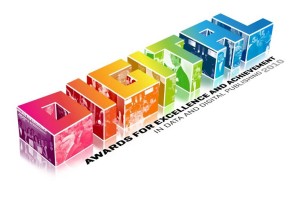Need a Sponsorship Sales Consultant? Top 10 Things to Ask Yourself
21st February, 2011
The need for sponsorship sales consultants is apparent everywhere. On almost every LinkedIn Group, Twitter feed, and on numerous email requests I see people looking for someone who can sell their property rights. Considering money can be hard to come by, I understand the reasons why this is now one of the most sought after positions. However, there are things that you should consider and things you need to be aware of before you take someone on.
In this blog, I’ll explain the Top 10 Things You Should Ask Yourself before considering hiring a sponsorship sales agency or consultant. There are variations of sponsorship consultants – those that work on commission-only, those that work on tactical, those that work with sports personalities, and many more variations.
In this first blog of a series, we’ll start by looking at whether you even need one and if you do, can you support one?
- Do you need a sponsorship sales consultant? If you have enough resource and staff with a good knowledge of both your property and an idea of what sponsorship can achieve, then you might not even need a sponsorship sales consultant. If you don’t have this, then…
- Can you outsource sponsorship sales to another sales department? Sometimes this can be disastrous – most often when the media ad sales team tries to take this task on. However, sometimes all it needs is a bit of sponsorship sales training and the right sponsorship proposals for your media ad sales teams to hit the ground running.
- Do you understand sponsorship strategy? If you are unsure about what sponsorship assets you own and how to package them, typically you will need more than just a sponsorship sales consultant, you will need a sponsorship agency to valuate rights, put together a strategy and do the research.
- Do you know if your property rights can be sold? History is a great way to understand what rights you have and if there is a market for them. However, many rights owners are just starting to integrate these strategies and are unsure of whether it can be done. As such, you really should determine the evaluation of the rights first before you waste time and resource in outsourcing sales that haven’t been strategically developed in the first place. You should evaluate your sponsorship rights before even considering hiring a sponsorship sales consultant.
- Is sponsorship an organisational goal? Sponsorship takes a lot of time and effort (even if sales are outsourced) within an organisation. If it is not an organisational goal, it will often get left behind and sales (whether done internally or externally) will not be successful. It takes a whole organisation to support this activity and the resource should not be underestimated. However saying that, sponsorship can help drive organisational change and innovation – we just suggest that everyone is behind the idea before you get started.
- Are there politics within offering sponsorship? Sponsorship can sometimes be a tricky thing to integrate due to politics. Sponsorship sales consultants who are not involved with the strategy may not appreciate these constraints without having a more long-term approach to working with your rights.
- Do you have senior staff and/or board members who will be against new sponsors coming on board? If this is the case, it will be difficult to get sponsors involved and those that do get involved with have difficulty activating their sponsorship and will not renew, making your sponsorship unsustainable.
- Do you understand your objectives with integrating sponsorship? Sponsorship not only can become a new revenue stream, it can also reduce costs. This is a great avenue, especially for new property rights and needs to be considered when approaching brands. Understanding the objectives and all the benefits you can achieve through sponsorship is important before hiring consultants so you can measure performance against KPIs.
- Do you have enough time? Sponsorship tends to be an afterthought when budgets haven’t been met. This creates a situation of distress sales and can often be detrimental to the rights owners. This needs to be communicated carefully and sales need to be strategically thought out.
- Do you know who to go to? Putting out random messages on social networks is not the best way to find sponsorship sales consultants. You need recommendations from people who have worked with them or have done the research. As mentioned, it is quite easy to call yourself a sponsorship sales consultant because so many people are in need. However, you need to do due diligence to ensure your programme is not dependent on people who cannot do the job.
Further to Question 10, we’ve had so many properties looking for consultants so we’ve put together an industry roster of sponsorship sales consultants. If you every need advice, please email [email protected] with your brief, property rights, and location and we will try and pair you up with a consultant that is most relevant to what you are looking to achieve.
For any sponsorship sales consultants who want to be on our roster, please check out this blog in order to qualify.


